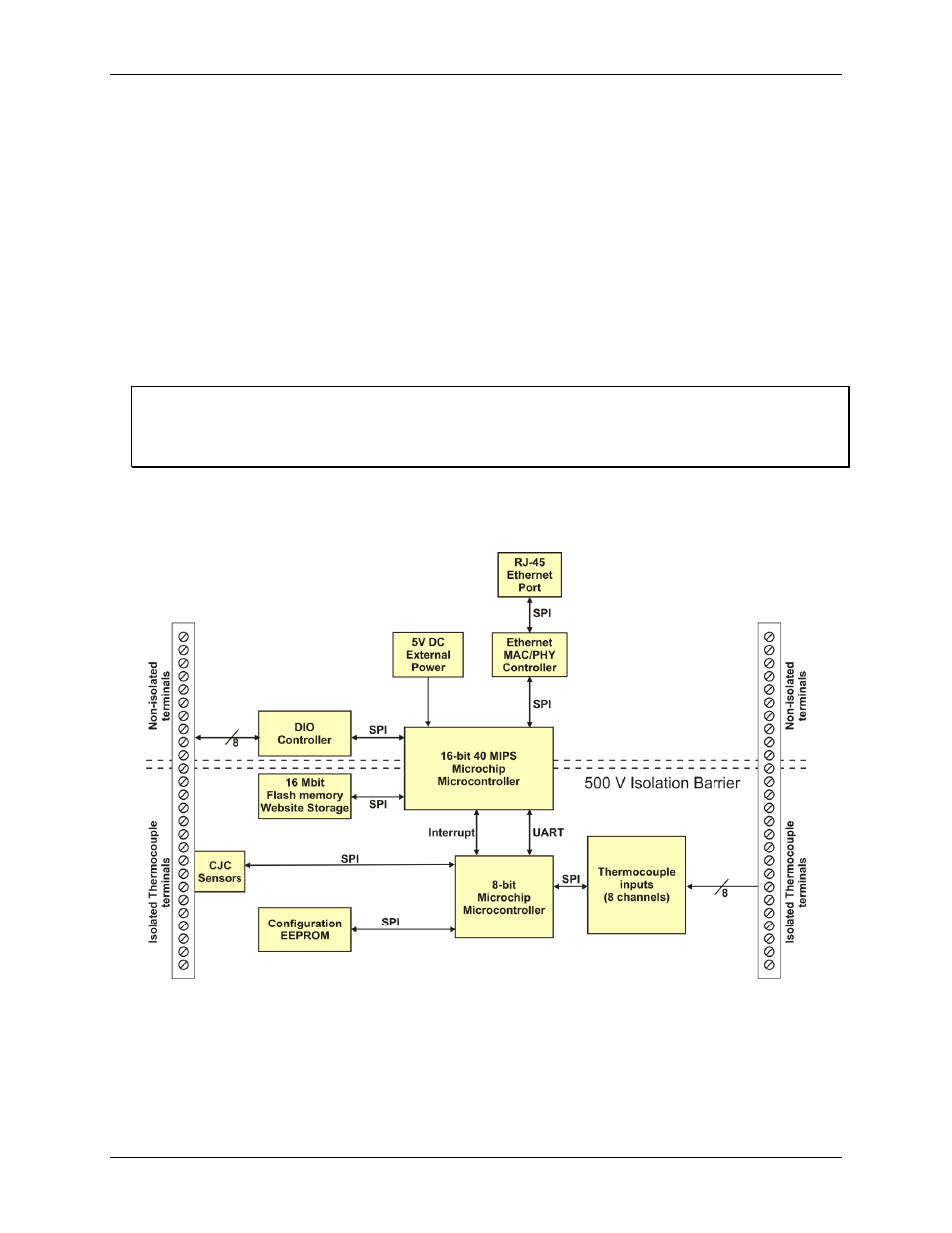Alarms, Digital i/o channels, Web-tc block diagram – Measurement Computing WEB-TC User Manual
Page 9: Software features

WEB-TC User's Guide
Introducing the WEB-TC
9
Alarms
The WEB-TC features eight independent temperature alarms. Each alarm controls an associated digital I/O
channel as an alarm output. The input to each alarm is one of the temperature input channels. The output of each
alarm is software-configurable as active high or low. The user-configurable threshold conditions activate each
alarm. When an alarm is activated, the associated DIO channel is driven to the active output state selected.
Digital I/O channels
Eight digital I/O channels are provided to communicate with external devices and to generate alarms. The
digital bits are software programmable for input or output. The digital output voltage is switch-selectable for
3.3 V or 5 V logic. A screw terminal is provided for pull-up or pull-down configuration.
The digital I/O channels power up in input mode unless the bit is configured for an alarm. When a digital bit is
configured as an alarm, that bit is configured as an output and assumes the state defined by the alarm
configuration.
If you need to log data or display data graphically
The WEB-TC displays current data read from the device, and does not log or store historical data. For logging
or trending needs, use the TracerDAQ software included on the Measurement Computing Data Acquisition
Software CD.
WEB-TC block diagram
WEB-TC functions are illustrated in the block diagram shown here.
Figure 1. WEB-TC functional block diagram
Software features
For information on the features of InstaCal and the other software included with your WEB-TC, refer to the
Quick Start Guide that shipped with your device.
